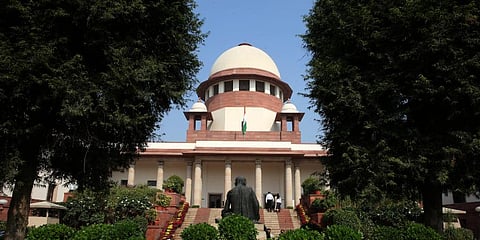

NEW DELHI: The Supreme Court on Thursday directed the Centre and the Indian Air Force (IAF) not to remove from service a woman Wing Commander, who was part of Operation Balakot and Operation Sindoor but was denied permanent commission.
The top court’s direction came after it heard the the plea filed by Wing Commander Nikita Pandey who claimed discrimination for being denied permanent commission in the Indian Armed Forces.
Seeking responses from the Centre and IAF on the plea, a two-judge bench of the apex court, led by Justice Surya Kant ordered that the petitioner should not to be released from service till further orders and posted the matter for further hearing to August 6.
Senior advocate Menaka Guruswamy, appearing for Pandey, told the court that her client was an expert fighter controller, who participated as an expert in the Integrated Air Command and Control Systems, which were deployed in Operation Sindoor and Operation Balakot. Highliting Pandey’s exceptional service,
Guruswamy said the officer had served over 13.5 years but was impacted by a 2019 policy that denied her permanent commission and forced her to conclude her service after a month. The officer ranked second in the merit list of expert air fighter controllers in the country, he added.
The bench asked Bhati, appearing for the Centre and IAF, the grounds for not granting the officer a permanent commission in the Armed Forces.
Also in top court
SC seeks guidelines on heatwave
Taking note of a PIL highlighting more than 700 heatwave deaths last year, the Supreme Court has sought the Centre’s response on a plea seeking directions to strictly implement national guidelines to prepare an action plan on the management of heatwave conditions. The SC was hearing a plea filed by environment activist Vikrant Tongad.
Pre-counselling fee disclosure a must
Expressing concern over widespread seat blocking in postgraduate medical admissions, the Supreme Court has mandated pre-counselling fee disclosure by all private and deemed universities for NEET-PG. It said seat blocking distorted the actual availability of seats and fostered inequity among aspirants.